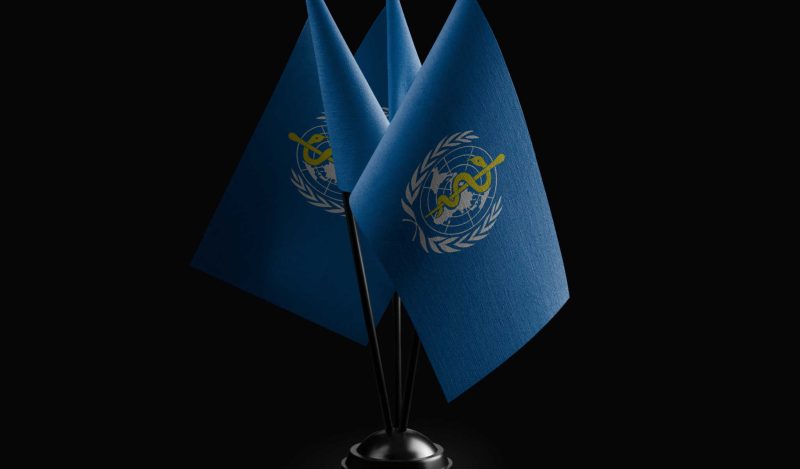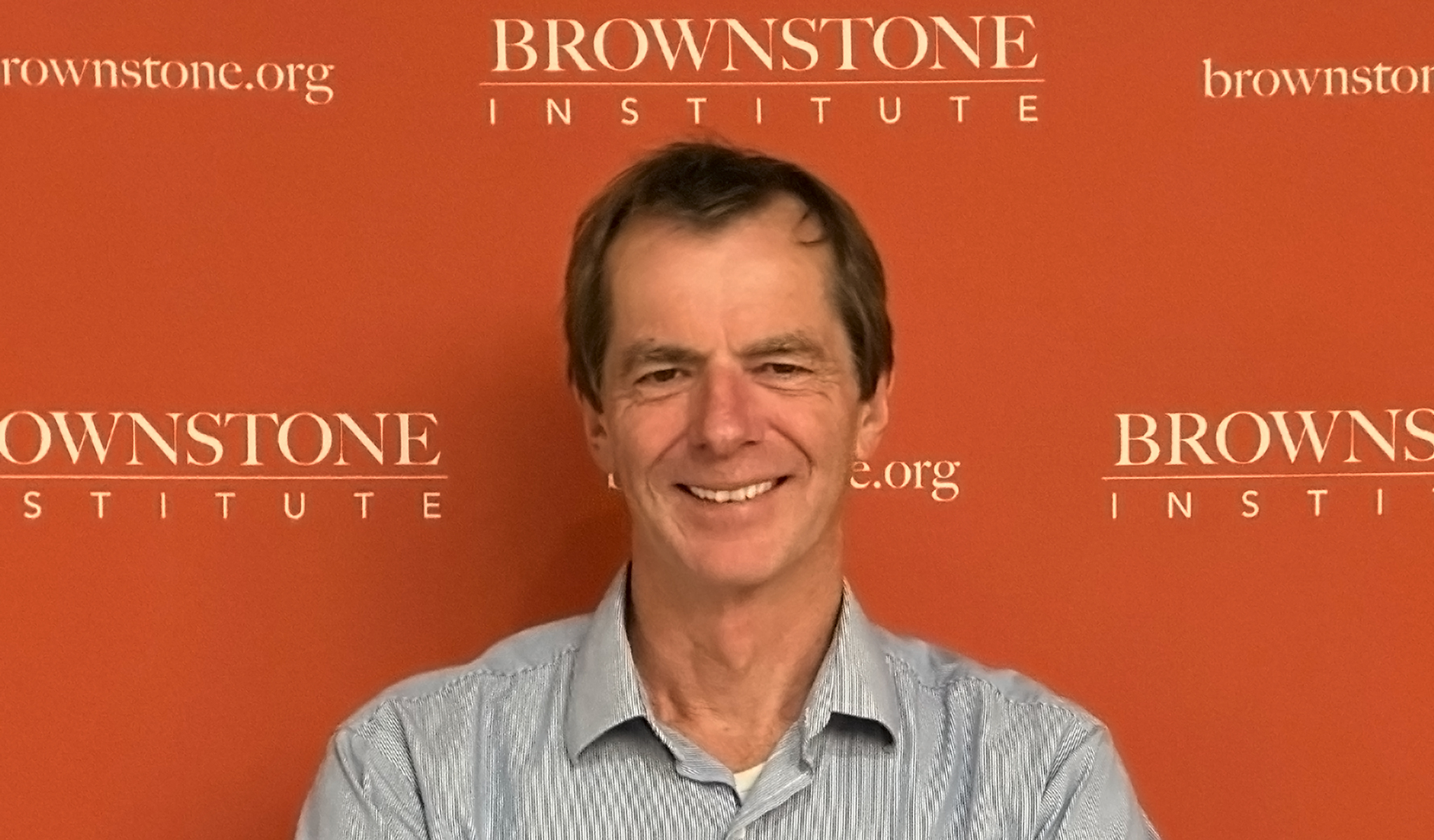[Assisting with this article is Thi Thuy Van Dinh (LLM, PhD), who worked on international law in the United Nations Office on Drugs and Crime and the Office of the High Commissioner for Human Rights. Subsequently, she managed multilateral organization partnerships for Intellectual Ventures Global Good Fund and led environmental health technology development efforts for low-resource settings.]
Democracies and sane societies are built on rationalism and honesty. They may not always exhibit this, but these values must underpin major decisions. Without them, neither democracy nor justice are sustainable. They are replaced by a structure in which the few dictate to the many, and the excesses of feudalism, slavery or fascism rise to dominance. This is why so many fought so hard, for so long, in defense of these ideals. People in democratic countries then elect representatives to the privileged position of guardians of their freedom.
The World Health Organization (WHO) is promoting a pandemic treaty (‘CA+’), and amendments to the existing International Health Regulations (IHR), to increase its power during health emergencies. These proposals also broaden the scope of emergencies to include potential rather than actual harm. The draft treaty suggests a definition of ‘One Health’ that encompasses any occurrence in the biosphere that could impact human well-being. This decision-making power will be placed in the hands of a single person, the WHO Director General. The WHO will require countries to sign on to these agreements to suppress and censor the voices of those who question the Director-General’s dictates.
The two proposals, detailed elsewhere, aim to expand an international bureaucracy for health emergencies with an additional annual budget estimated by the World Bank at three times the WHO’s current budget. This program is heavily backed by the WHO’s major individual and corporate sponsors, entities that will directly benefit through the commodity-centered responses that are proposed. However, it will be mainly funded by taxpayers.
This is a new model for the WHO and for public health. The WHO was originally intended to serve countries, not instruct them. The proposals aim to reduce individual and national decision-making power, or sovereignty, replacing this with obedience to the WHO’s recommendations. When the WHO Director-General recently suggested that the above was untrue, he was not reflecting the WHO’s proposals, but a separate, public messaging campaign. In WHO parlance, he was spreading misinformation.
Individual sovereignty and human rights were once central to public health. These concepts are commonly exercised through elected representatives, and through retention of inalienable rights of a person in decisions over their own body. Anti-fascist agreements such as the Nuremberg Code are based on this understanding. These alone are compelling reasons to oppose these WHO proposals. But there are other compelling reasons why these proposals are both ridiculous and dangerous.
Developing a drug cartel
Much of the WHO’s funding comes from private and corporate sponsors, who specify how their money will be used. The companies have responsibility to their shareholders to use this relationship to increase profits, whilst individuals are directly invested in companies that will gain from the WHO’s health emergency proposals. We saw this during Covid-19.
A lack of interest from major media, which derive their largest private advertising revenue from the same companies, should not be taken as a reason to ignore it. The WHO’s sponsors seek to profit by it taking control of potentially profitable aspects of health away from representative governments, so that their products can be mandated for use more broadly, and more often.
Undoing democracy
It is right and fair that all countries should be represented at the World Health Assembly. However, much of the world’s population lives under authoritarian governments and military dictatorships. The current WHO Director-General was a minister in a dictatorial government. This is fine for an organization that convenes meetings and names diseases. But it is obviously inappropriate for a democratic country to cede authority over its own citizens to such an entity, and to unaccountable international officials subject to conflict of interest, influences, and biases.
Public health responses should depend entirely on a population’s own values and priorities, not that of foreign dictators or their appointees. It would be stupid to give control to those espousing quite opposite values.
Obvious incompetence
Before entrusting one’s health to others, it is essential to know that they are competent. Despite having previous evidence-based guidelines for pandemics, the WHO lost the plot disastrously with Covid-19. It supported policies that have worsened such diseases as malaria, tuberculosis and malnutrition, and increased debt and poverty to lock in poorer health for the next generation. These policies increased child labor and facilitated the rape of millions of girls forced into child marriage, whilst denying formal education to hundreds of millions of children. Sick elderly people were unable to get care, while healthy people were confined at home. They have promoted the largest upwards concentration of wealth, and its consequent mass impoverishment, in history.
For the past two years, the WHO has embarked on a project to mass vaccinate 70 percent of African populations, despite half the population being under 20 years of age so at minimal risk, and the WHO’s own study showing the vast majority had already had Covid-19. This program is the most expensive, per year, that the WHO has ever promoted. It is now seeking powers that will enable them to repeat these types of responses, often.
Disdain for human rights
Countries adopting the proposed IHR amendments will accept WHO recommendations as obligatory. The list covered in the IHR includes border closures and refusal of individual travel, isolation of ‘suspect’ persons, required medical examinations and vaccination, exit screening and requirements of proof of testing. These will be imposed on a country’s own citizens when an individual in this organization sponsored by large multinational corporations and wealthy investors decides, independently, that an undefined health ‘threat’ poses a risk to other countries.
There are no clear criteria for ‘risk,’ and no need to demonstrate harm, for this draconian removal of basic human rights to be imposed. The WHO Director General will not even have to consult and obtain wider consent. Other initiatives are underway to ensure that the required vaccinations will not need to undergo normal safety testing. There is no soul-searching regarding the devastation caused to individuals and economies through similar policies implemented during Covid-19. Rather, the WHO and partners are claiming increased urgency, using irrelevant outbreaks such as Monkeypox to justify their haste. This is community-driven health, and post–World War II human rights, turned upside down.
A self-perpetuating funding black hole
The system proposed by the WHO will put in place a global health bureaucracy quite different from that traditionally sustained by the WHO. The organization will assess biennially each country’s readiness to respond to rare events, and demand rectification. Intensive surveillance will find the new virus variants that always evolve in nature. Rather than allowing these variants to fade away unnoticed, this bureaucracy will sequence them, name them, decide they pose a threat, and institute the society- and economy-wrecking measures they have honed since 2020.
Although the WHO recorded just one mild ‘pandemic’ per generation for the past 100 years, this system makes the proclamation of frequent emergencies inevitable. Such ‘success’ will be essential justification to maintain funding. The response will include lockdowns and border closures, and then mass testing and vaccination “to escape these lockdowns and save the economy.” Media will sell breaking news, counting infections and available hospital beds whilst offering no context; health departments will tout essential workers as heroes at the international, regional and national level. Covid-19 established this model.
In a country with a functioning constitutional democracy, a system based on such perverse incentives would not be allowed. But WHO does not operate under any national jurisdiction, or answer directly to any population. It does not have to endure the negative impacts of its dictates. It is prioritizing its sponsors’ needs, and seeking to impose them on distant others. If it is to take this funding, and pay its staff salaries, it has no choice.
Being realistic about health
The WHO is not the organization it was 40 years ago. Based on disease burden (what maims and kills people), the big killers of humanity apart from old age are the non-communicable diseases (i.e. most cancers, heart disease, strokes, diabetes and other metabolic disease), infectious diseases such as tuberculosis, HIV/AIDS, malaria, and the many maladies arising from childhood malnutrition. By comparison, pandemics have taken a minimal toll on humanity in the past century. Uninhibited by such realities, the WHO still considers Covid-19 (average age of death >75 years), and even monkeypox (<100 deaths globally) to be international emergencies.
The WHO’s funding arrangements, its track record, and the perverse nature of its proposed pandemic response should be enough to render these proposed agreements anathema in democratic States. If implemented, they should make WHO unfit to receive public funding or provide health advice. The international community can benefit from coordination in health, but it would be reckless to entrust that role to an organization clearly serving other interests.
Join the conversation:

Published under a Creative Commons Attribution 4.0 International License
For reprints, please set the canonical link back to the original Brownstone Institute Article and Author.









